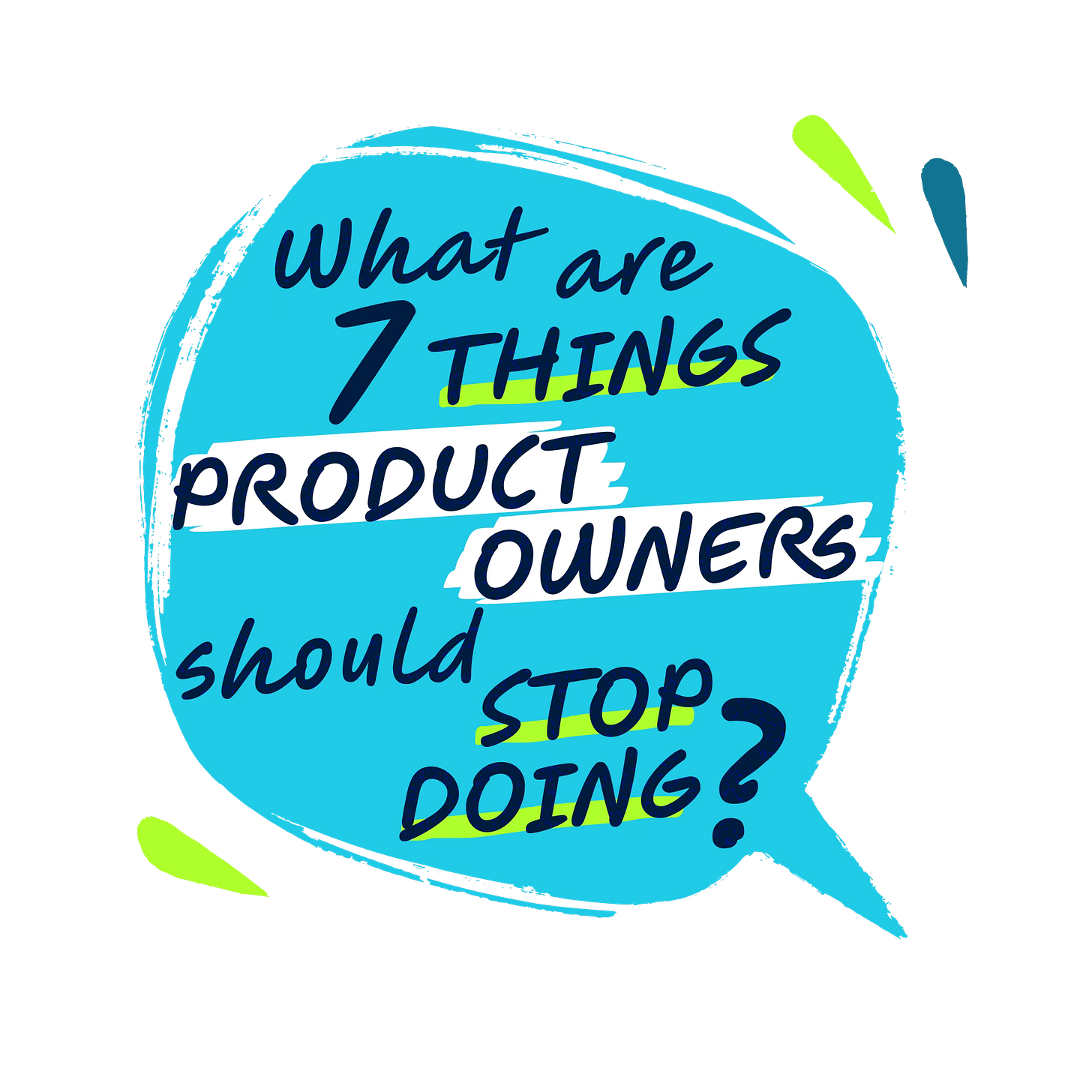What Are 7 Things Product Owners Should Stop Doing?
There are good and great product owners. Sometimes, the distance from good to great is the hardest part of the journey. If you want your product owner to be more effective, show them this.
Living the product owner accountability in a product organisation takes work. There's a big difference between truly understanding the product owner’s accountability and focusing on responsibilities only.
Even good product owners sometimes fail by spending too much time on the least impactful or harmful activities. Here are seven things a product owner should stay away from to be more effective in maximising value:
1. Acting Like the Team Manager
If, as a product owner, you want to manage something, manage the direction of the product, manage the product backlog, or manage the relationship with the stakeholders,
Don't direct the Developers, even if people around the team ask you to act like a project manager.
2. Not Involving the Team in Product Backlog Management
Yes, you are accountable for effective product backlog management as a product owner. But there's a difference between accountability and responsibility.
The most notable benefits of involving the entire team in the product backlog management process are fostering technical insights for efficiency and collaborative decision-making.
Developers can provide deep technical understanding, refining the backlog with efficient solutions to complex problems while speeding up decisions, ensuring clarity, and better aligning product backlog items with sprint and product goals.
3. Create All the Goals and Objectives Alone
Yes, as a product owner, you are accountable for:
Developing and explicitly communicating the Product Goal
In the same Scrum Guide 2020, we find out that:
The Product Owner may do the ... work or may delegate the responsibility to others.
Developers contribute vital technical insights, ensuring sprint and product goals align with feasible, efficient solutions.
At the same time, collaboration empowers developers to contribute insights, enhancing commitment, ownership, and successful goal achievement.
4. Be a Team Output Owner and Act Like a Proxy
While requirements and demands from internal and external stakeholders will keep coming, as a product owner, you should be able to decide what's best for the product.
Without an entrepreneurial mindset, it's hard to navigate challenges with creativity. It's about taking smart risks, like planting seeds for future success.
Imagine sailing through key value areas, metrics and indicators, adjusting the course to catch the best winds for our journey. Are you really the one in charge of the journey?
5. Forget That Value Requires Validation
The secret of true agility is the relentless pursuit of value.
Do the solutions really meet user needs? Did we have valid assumptions while we were building the product? Which experiments failed, and which were successful? What should we do more of, and what should we do less?
Thinking in small bets is the key to having a winning product mindset.
6. Treating All Stakeholders the Same
Different stakeholders have unique goals that lead to differing priorities. Not all of them align with the overall product goals.
They have varied impacts and influence on product outcomes.
Based on that, customising engagement and delivering tailored communication is essential.
7. Not Involving the Team in Stakeholder Conversations
As a Product Owner, you should foster developer-stakeholder conversations. This helps alignment, collaboration, innovation, and adaptability.
A shared understanding and collective ownership align the team with stakeholder goals.
Leveraging team insights in stakeholder discussions drives creativity, problem-solving, and faster adaptation to change.
The journey from a good Product Owner to a great one is sometimes challenging and requires much courage.
You can be a true value maximiser and help your team and organisation build market-leading products by making the right decisions, moving forward and becoming a better leader with product ownership skills.
Do you care about the value that your Product Owner brings to your team?
Share this article with them.



